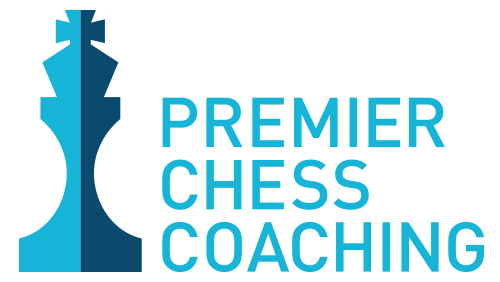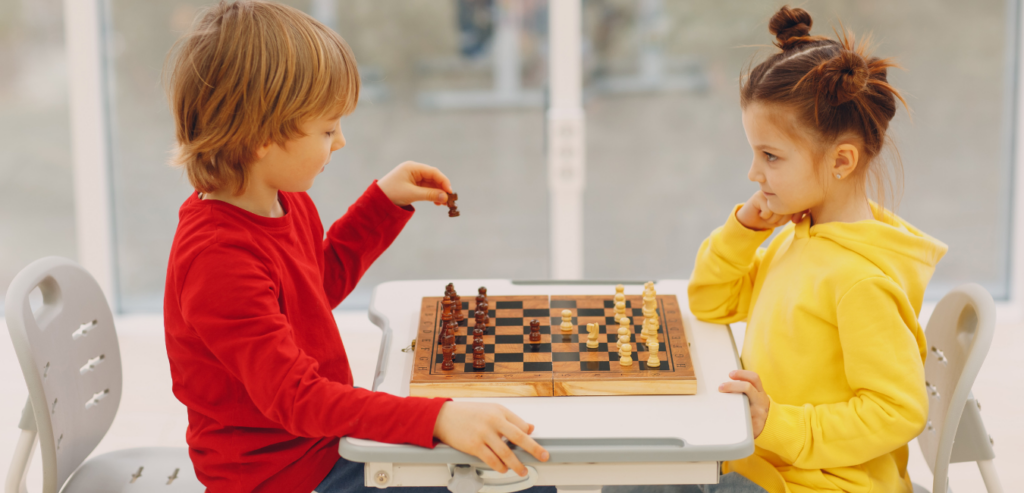In today’s digital age, many parents struggle to find screen-free activities that engage their children while promoting essential skills. With the rise of smartphones, tablets, and gaming consoles, children often spend hours in front of screens, which can impact their health, attention spans and social skills.
That’s where chess comes in—a timeless, screen-free activity that’s as entertaining as it is educational. Chess not only provides hours of fun but also fosters critical thinking, concentration, and emotional resilience. Here’s why chess is the perfect alternative to excessive screen time for your child.
1. Chess Develops Critical Thinking Skills
Chess is a game of strategy, requiring players to think several moves ahead, evaluate their options and anticipate their opponent’s responses.
- Why It’s Better Than Screen Time: While many digital games encourage instant gratification, chess teaches patience and the value of thoughtful decision-making. These problem-solving skills are transferable to academics and real-life challenges.
2. Chess Improves Concentration and Focus
To succeed in chess, players must concentrate deeply on the board and avoid distractions.
- Why It’s Better Than Screen Time: Unlike many apps and games designed to capture short bursts of attention, chess encourages sustained focus, helping children develop the ability to concentrate on tasks for longer periods.
3. Chess Encourages Face-to-Face Interaction
Chess is a social activity that promotes interaction with others, whether playing against family members, friends, or peers in a chess club.
- Why It’s Better Than Screen Time: Excessive screen use can isolate children, while chess fosters communication, teamwork, and the opportunity to build meaningful relationships.
4. Chess Enhances Emotional Resilience
Chess teaches children how to deal with wins and losses gracefully. Learning to recover from a mistake or loss is an essential part of the game.
- Why It’s Better Than Screen Time: Many video games focus on winning at all costs, leading to frustration and stress. Chess builds emotional resilience by teaching children how to handle setbacks and keep trying.
5. Chess Combines Fun with Learning
While chess is intellectually stimulating, it’s also incredibly fun. The thrill of planning a strategy, surprising an opponent, or achieving a checkmate keeps children engaged.
- Why It’s Better Than Screen Time: Unlike screen-based activities, which often focus on entertainment alone, chess seamlessly integrates enjoyment with cognitive development.
6. Chess is Portable and Accessible
Chess doesn’t require batteries, Wi-Fi, or a power outlet. A chessboard can be played anywhere—at home, in the park, or even on holiday.
- Why It’s Better Than Screen Time: Instead of being tied to a device, chess encourages children to explore their surroundings and engage with others in any environment.
7. Chess Promotes Lifelong Skills
The skills learned through chess—such as strategic thinking, planning, and decision-making—are valuable throughout life.
- Why It’s Better Than Screen Time: While the latest app or game may lose its appeal quickly, the benefits of chess last a lifetime, equipping children with tools for success in school and beyond.
Tips for Introducing Chess to Your Child
- Start with the Basics: Teach them the rules of chess in a simple, engaging way. Many child-friendly chess boards come with instructions designed for beginners.
- Make It Fun: Use puzzles, themed chess sets, or games with rewards to keep them motivated.
- Join a Chess Club: Enrol your child in a local chess club where they can learn from experienced coaches and interact with peers.
- Play as a Family: Make chess a regular family activity to spend quality screen-free time together.
Conclusion
Chess is the ideal screen-free activity for children. It combines fun, education, and personal growth, offering a productive alternative to the endless distractions of digital devices. By introducing your child to chess, you’re giving them the tools to think critically, focus deeply, and interact meaningfully—all while having a great time.
If you’re ready to bring chess into your child’s life, contact us today to learn more about our programmes and how we can help your family start your chess journey. Let’s replace screen time with strategy and set your child up for success!


